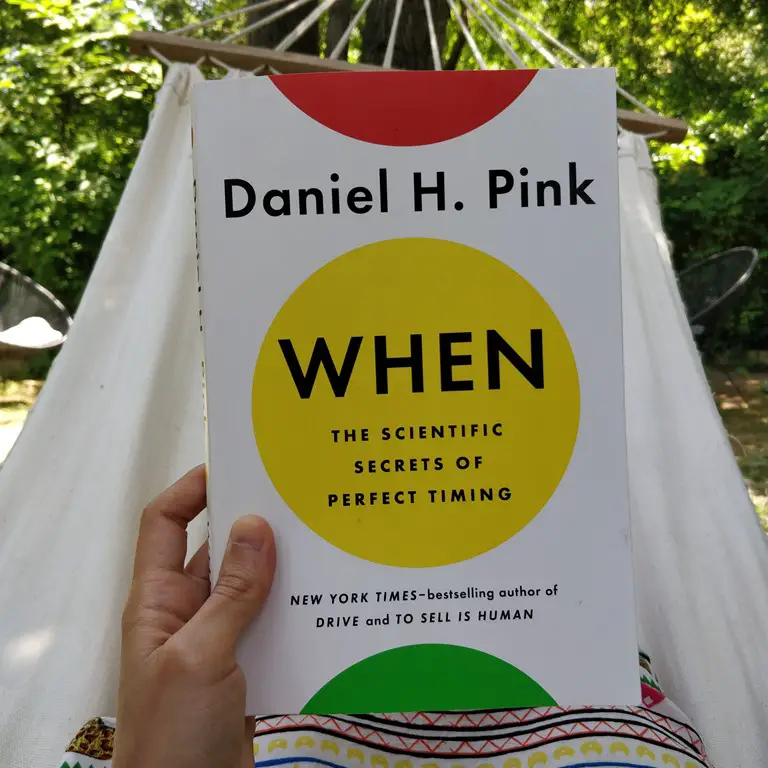Why incorporating breaks in our daily routine helps us become better decision-makers
 In the past months I’ve read anything I could find on the subject of routines and habits, in search for new ways to be more efficient and work smarter – on both personal and professional levels.
In the past months I’ve read anything I could find on the subject of routines and habits, in search for new ways to be more efficient and work smarter – on both personal and professional levels.
On one side, as the founder of a start-up in a highly fragile and incipient stage, my main purpose is to make sure I’m optimizing every step along the way and accelerate growth. On the other hand, in my free time I’m running mountain trail long-distance races – a weird hobby that I’ve gotten into only a few years ago, and I’m trying to maximize my training.
The past weekend I read Daniel Pink‘s new book, “When“, a manual about how we can use time in our advantage (you probably know Daniel Pink because of his previous best sellers: Drive and To Sell is Human).
For “When” he put together hundreds of studies and researches about our internal clocks, our “chronotypes” (if we’re larks – early risers, night owls, or – as most of us are – somewhere in between), and how these are related with our age and daily fluctuations. All these factors affect our ability to make decisions, learn, be productive, do analytical or creative work, practice sports, and so on.
Among the interesting insights I’ve taken so far from this book, the author argues that we should try to stay away from making important decisions in the afternoon, when most of us start to blunder and our cognitive capacity is also negatively impacted.
This is something that I’ve always felt intuitively – it’s why I’ve been trying to do my most important work in the mornings, but didn’t have the necessary scientific facts to explain it.
On the bright side, we can counter these fluctuations by taking restorative breaks just before afternoon. Here are a few tips that Daniel Pink suggests:
1. Try to completely disconnect from work. Don’t just take ‘useful procrastination’ breaks, when we don’t do important work, but instead read an article related to our industry, answer emails or talk to a team member. Instead, we should try to detach completely from work and technology. This is something that in the past I was feeling guilty doing – I felt like I was wasting too much potentially productive time, and I was trying to fill the afternoons with all sorts of meetings or less vital tasks, such as batch scheduling social media posts – still work related, though. Starting next week I’ll try to change this and see what happens if I disconnect 100% – no guilt attached!
2. Socially is better than solo. If you’re an introvert, like me, you probably prefer spending time alone to mentally recharge your batteries. However, studies show that being with others is helpful and reduces stress – especially in high-pressure situations. I work from home, all alone, so I don’t know how I’ll be able to test this hypothesis.
3. Try to take active breaks. We’re already aware of how bad sitting is (some scientists even compare its effects to smoking in order to make us understand how seriously this is). It also appears that sitting for long stretches of time makes us less focused and creative. So stand up and walk for a few minutes, let your brain wander.
4. Best case scenario: go outside and spend time into nature. Just a few minutes outdoor, among plants, trees or a stream of water, seems to have huge benefits over our mental health. So, if there’s any way that you can spend time walking outside, it will boost your energy level better than a mid-day caffeine shot, improve your mood and sharpen your focus. If you have a park close to your work place, go take a walk through it (Ryan Holiday, one of my favorite authors & media strategist, likes to schedule his calls while taking a walk in the park).
Two more interesting reads on the subject: Mason Currey’s book Daily Rituals, that profiles more than 150 of the greatest minds of all times and their daily schedules (from writers to philosophers, scientists, screenwriters, etc) and Cal Newport’s Deep Work, that also shows how some of the best performers in the world use(d) downtime to increase their ability to focus and enhance creativity.
So, tell me: what’s your experience with taking mid-day breaks? 🙂
1 Comment